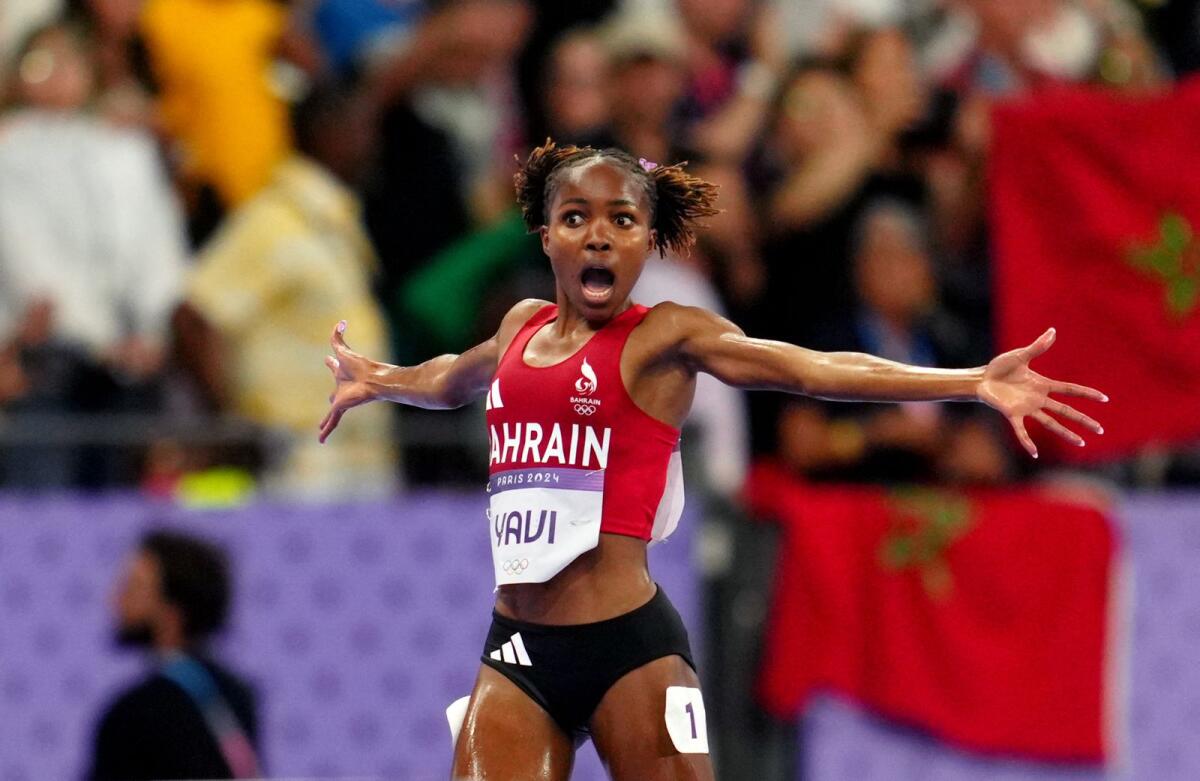As Kenya basks in the glory of finishing as Africa’s top performer at the Paris Olympics with an impressive haul of 11 medals — including 4 gold, 2 silver, and 5 bronze — a deeper concern is emerging within the continent’s sports community. Despite this success, a significant number of medals, including golds, were won by African-born athletes representing other nations. This trend has ignited a debate on the factors driving these athletes to switch nationalities and the potential long-term impact on African sports.
The Growing Trend of Nationality Switches
One of the most striking examples of this phenomenon is Kenya’s own Winfred Yavi, who now competes for Bahrain. Yavi’s journey is a testament to the broader challenges facing African athletics. Despite her immense talent, Yavi struggled to secure a spot on the Kenyan team, where competition is fierce and the selection process highly stringent. Frustrated by repeated setbacks, she made the life-altering decision in 2014 to switch her allegiance to Bahrain, a country that has become known for its aggressive recruitment of African athletes.
In Paris, Yavi clinched gold in the women’s 3,000-meter steeplechase, setting a new Olympic record. While her victory was celebrated in Bahrain, it sparked mixed emotions back home in Kenya. Many Kenyans lament the fact that their country could have added another gold to its tally if Yavi had remained on the team. Gregory Kilonzo, Yavi’s coach, who also trains other Bahraini athletes, explains that Bahrain offers a more streamlined path to the Olympics, with fewer trials and better financial incentives. “Here in Bahrain, we go directly to the Olympics. We don’t go for trials because we are not many. Kenya, we go national, we go trials. And then Bahrain pays well. They are serious with their athletes. They take care of their athletes. They pay salaries for the athletes every month. If you get sick, they take you to other countries for medical care,” Kilonzo said.
Yavi is not alone in her decision to switch nationalities. Another prominent example is Annette Echikunwoke, a hammer thrower originally from Nigeria. Echikunwoke was denied the opportunity to represent Nigeria at the 2020 Tokyo Games due to the country’s non-compliance with drug testing regulations. Disillusioned and eager to compete on the world stage, she switched her allegiance to the United States, where she found greater support and opportunity. At the Paris Olympics, Echikunwoke won a silver medal for the U.S., a triumph that was bittersweet for Nigeria, which returned home without a single medal.
The Impact of Changing Allegiances
These cases highlight a growing concern across Africa: the exodus of homegrown talent to other countries. Sifan Hassan’s story adds another dimension to this issue. Born in Ethiopia, Hassan fled her homeland as a refugee and resettled in the Netherlands in 2008. Since then, she has become one of the world’s most successful distance runners, securing three Olympic gold medals for the Netherlands, including one in the women’s marathon at the Paris Olympics.

Hassan’s success is a source of pride for the Netherlands, but it also raises questions about what Ethiopia might have achieved had she remained. The reasons African athletes give for changing nationalities vary, but they often include a lack of adequate training facilities, insufficient financial support, and corruption within sports administrations that favor certain athletes over others.
Richard Wanjohi, a researcher with the African Sports and Creative Institute, which supports African sports through research, advisory, and advocacy, is among the experts raising concerns. Wanjohi argues that the trend of African athletes abandoning their birth countries for better opportunities abroad could have significant long-term consequences for Africa’s performance in future competitions, particularly if young athletes continue to leave. “You see people transitioning maybe between the age of 18 to 21 years, and that’s considerably young even in the athletics space and other sporting disciplines that they compete in,” Wanjohi explained. “Once these individuals move, you are not able to get representation as a country. Or even when you have representation, [it] is not the best talent you would have.”
Notable African Athletes Who Now Compete for Other Nations
The list of African-born athletes who have switched allegiances is extensive and includes some of the most celebrated names in athletics. In addition to Winfred Yavi and Sifan Hassan, other notable examples include:
- Ruth Jebet – Born in Kenya, Jebet switched allegiance to Bahrain at a young age and went on to win gold in the women’s 3,000-meter steeplechase at the 2016 Rio Olympics. Her success for Bahrain represented a significant loss for Kenya, a country renowned for its dominance in distance running.
- Wilson Kipketer – Originally from Kenya, Kipketer switched his nationality to Denmark in the early 1990s. He became one of the world’s top middle-distance runners, setting a world record in the 800 meters that stood for over a decade. Despite his success, Kipketer’s decision to run for Denmark rather than Kenya remains a topic of discussion in athletics circles.
- Mohammed Aman – This Ethiopian-born middle-distance runner changed his allegiance to Bahrain in 2015. Aman had already established himself as a world-class athlete, winning multiple medals for Ethiopia, including gold at the World Indoor Championships. His switch to Bahrain was driven by the promise of better financial rewards and training facilities.
- Abdullah Al-Qarqani – Originally from Sudan, Al-Qarqani, a long-distance runner, transferred his allegiance to Qatar in the early 2000s. His success on the track for Qatar highlighted the growing trend of Gulf states recruiting African talent to boost their international sports profiles.
These athletes, among many others, represent a broader trend that is reshaping the landscape of international sports. While their individual successes are undeniable, their departures have left gaps in their countries of origin that are difficult to fill.
The Way Forward: Investing in African Talent
To prevent the continued loss of promising athletes, sports fans and experts across Africa are calling for urgent reforms. One of the most pressing needs is the identification and nurturing of talent at a young age. Schools and community programs can play a critical role in spotting potential athletes and providing them with the training and support they need to compete on the global stage.
Investing in sports science and technology is another crucial step. Traditionally, African countries have relied on natural advantages, such as the high altitudes of East Africa, to train their athletes. However, as other nations increasingly incorporate advanced sports science into their training regimes, Africa risks falling behind. Retired middle-distance runner Martin Keino of Kenya emphasizes the importance of embracing these advancements. “If our countries can invest in sports science and technology because technology has a huge impact on sports and if a nation doesn’t utilize technology, you are uncompetitive on the global stage,” Keino said.
Moreover, there is a need for greater transparency and fairness in the selection processes for national teams. Corruption and favoritism have long been cited as reasons for talented athletes being overlooked, leading them to seek opportunities elsewhere. By ensuring that all athletes are given a fair chance to compete for a place on the national team, African countries can retain more of their top talent.
Financial support is another critical area that requires attention. Many African athletes leave because they feel that their home countries do not adequately compensate them for their efforts. Providing better salaries, medical care, and retirement plans for athletes could help stem the tide of talent leaving the continent.
Conclusion: The Future of African Athletics
The flight of African athletes to foreign flags is a complex issue with no easy solutions. However, the consequences of this trend are clear: if left unchecked, Africa may continue to lose some of its best and brightest talents to other nations, diminishing its presence and competitiveness on the global stage.
The Paris Olympics have once again highlighted the immense potential of African athletes. To harness this potential, African nations must act swiftly to address the underlying issues that drive athletes away. By investing in young talent, embracing sports science, and ensuring fair and transparent selection processes, Africa can retain its top athletes and continue to shine in international competitions for years to come.
The challenge is significant, but the rewards both in terms of national pride and sporting success are well worth the effort.
ALSO READ:A New Flag, A New Glory: Winfred Yavi’s Record-Breaking Steeplechase Victory


